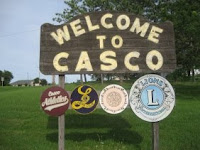Article first published as Modern Business: Fred Flintstone or George Jetson on Blogcritics.
Article first published as Modern Business: Fred Flintstone or George Jetson on Blogcritics.
The adage goes like this: How can you tell when a client/customer is lying? Their lips are moving. Adages come from somewhere, especially when they are deprecating. I do not know where that somewhere is. If I did I would tell you. I am not your client. Nor are my lips moving. And why would I lie to you? The reality is, however, that the adage must be based in some arcane fact because in my consulting practice I have found it almost painfully true.
The worst part of this bitter truth is not the distortions of fact but the lies that clients tell themselves so often that the falsehoods might as well be truths. I call this phenomenon “breathing one’s own ether.” I am not talking about the ether that was proposed by the Greek philosopher Aristotle and later used in optical theories as a way to allow the propagation of light, although I could. My ethereal euphemism refers to the ether usage during the 1930s that was the first anesthetic to make patients lose consciousness quickly and completely.
Clients slap on an invisible face mask, turn on the regulator, inhale deeply, and remove the mask from their face, lungs filled with the vapor. They look me squarely in the eye and begin to recite well-rehearsed lines from the abyss of falsehood. What is worse is the look on their face when the expect me to believe them and see clearly that I do not.
As a consultant it is not my job to believe anything that a client says anyway, unless it can be verified in writing. The absence of verifiable documentation is at least a good place to start. Even if there is documentation, its veracity must be challenged because to do otherwise is to engage in a world of ambiguity, which is something I expect from salespeople and the essence of another essay.
Here is an example. “Having my spouse work in the business saves the company money.” The false economy of having a family member work off the payroll creates other issues than a compensation plan that sucks. It compromises the integrity of the business, creates huge boundary issues between personal relationships and work relationships. Job description, supervision, company policy and procedure are all compromised. It is not a successful plan.
Let me cite a couple of television shows to exemplify what I mean. One is a comedy and the other is a reality show. One is about delusion and the other about denial. First, the comedy:
Breathing one’s own ether is the reason I have a hard time watching The Office. Its central character of the American version, Michael Scott is played so well by Steve Carell that it is painful for me to enjoy. The character is delusional. He believes he knows everything and that he is a great boss. Grant you, good comedy relies on a dose of pathos. If only Michael wouldn’t believe his own bull, but then the show would become a tragedy. In business, it frequently is a tragedy and Michaels exist more than you might think.
The reality show about people breathing their own ether is Kitchen Nightmares. Gordon Ramsay’s confrontational style aside, his clients are beyond delusional, they are in denial. It is kind of like watching grown people having their faces rubbed in their own poop by the genial bombastic “Chef” with a capital C. The owners that Ramsay confronts have signed on for abuse when they insist that wrong is right. Although I have entered the frontier of outright confrontation in my practice, you do not get letters of endorsement with bombast. Nor am I producing a reality style show.
Whether it results in delusion or denial, the problem is that the behavior becomes an obstacle to success. Michael Scott and Ramsay’s restaurateurs are in their own way.
If I were to produce a show about the management consulting practice, I would call it Extreme Make-Over: Business Edition. Come to think of it, let me slap on my own invisible mask and take a snort or two. Heck, I could sell it to Cadillac, or Donald Trump, or Budweiser, that’s it. I could star in it too; I used to be a TV weatherman and was every bit as good as David Letterman. It will be perfect for Fox or the Learning Channel. We’re talking, you know. Are my lips moving?
# # #
Originally published on Blogcritics, June 11, 2011
When politicians and pundits talk about small businesses and job creation, many of them seem to rely on Chamber of Commerce created public relations photo opportunities and televised factory tours for their information rather than finding out the facts. Here are some facts that most politicians and pundits ignore in their fantasy world of U.S. businesses.
The Small Business Administration defines a small business as “one with fewer than 500 employees.” Here is the short version of what the SBA says is important about small business to the U.S. economy.

Some perspective is in order. Go to the sports page and think about Pro Football for a minute. I am not talking about the sports teams themselves, but about the financial impact the NFL wields on franchise towns like Green Bay, which is not a major market. Business News Daily says an “NFL Lockout Could Sack Small Businesses.” According to the Daily, “The livelihoods of thousands of small business owners and their employees are at stake in each of the NFL’s 32 cities. Restaurants, bars, team apparel stores and other small businesses located within walking distance of NFL stadiums are bracing themselves for a potential lockout and the ramifications it may have.” Would you like to talk about a seasonal business?
Article first published as Factory Tours and Facts on Blogcritics.